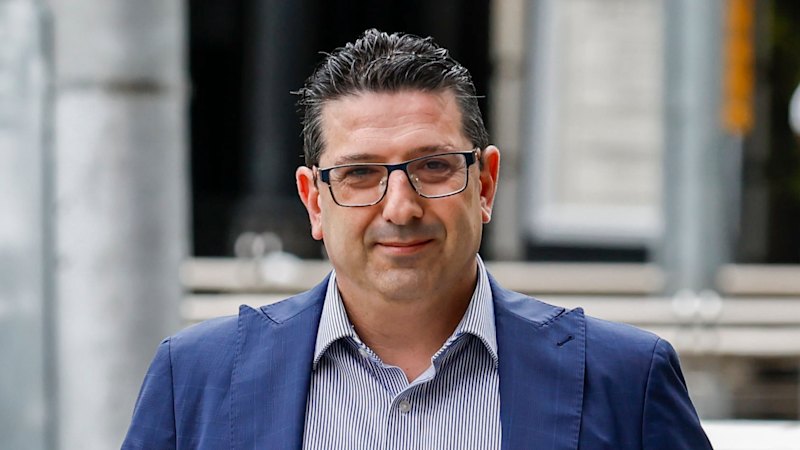
A Melbourne businessman, Paul Chiodo, has been accused of using funds from the now-defunct Shield Master Fund to finance the renovation of two luxury apartments into a $10 million residence. The allegations surfaced during a public examination in the Federal Court on Monday, where liquidators sought to uncover the fate of $500 million invested by nearly 6,000 Australians.
Chiodo, the manager of the Shield Master Fund, faced intense scrutiny over the lavish renovation of his inner Melbourne apartments, which boast bay views, and his acquisition of high-end vehicles. Despite the pressure, Chiodo maintained that there was no formal budget for the renovations, which combined his $2.6 million apartment with an adjacent $5 million unit, but he worked towards a general estimate.
Allegations and Court Proceedings
During the court proceedings, Chiodo was questioned about the absence of a written contract with the builder, relying instead on an oral agreement. Collette Mintz, representing the liquidators from Alvarez & Marshal, challenged Chiodo on his lack of a budget, to which he responded, “No. Have you ever renovated your family home?” He claimed the renovation cost approximately $2.6 million, aligning with his expectations.
Chiodo insisted that his private company, Chiodo Corporation, financed the renovations, although he admitted that the company’s funds originated from the Shield Master Fund. He acknowledged that the builder’s invoices incorrectly listed the work as an investment of the Shield Master Fund, which he described as an error.
Financial Discrepancies and Investigations
The Shield Master Fund, managed by Chiodo’s Keystone Asset Management, is currently under liquidation. Liquidators and the corporate watchdog have alleged that Chiodo misappropriated over $5 million from the fund to purchase a third apartment in 2024. Chiodo also defended his purchase of luxury cars, including a Lamborghini Urus and a Porsche, denying they were funded by investor money.
The Australian Securities and Investments Commission (ASIC) is conducting a separate investigation into Chiodo concerning the collapse of Shield, alleging mismanagement and misuse of investor funds for personal property developments and events featuring sports stars like NBA player Josh Giddey.
Historical Context and Business Partnerships
Earlier this year, reports revealed Chiodo’s long-standing business partnership with David Anderson. The duo invested together, acquired properties jointly, and developed marketing strategies to attract investors to their funds. Both funds have since collapsed, jeopardizing the life savings of 12,000 individuals. In response, Macquarie Group has agreed to compensate Shield’s victims with $321 million after its planners directed investments into the failed fund.
Chiodo has consistently argued that he has been unfairly targeted by regulators, asserting that investors would not have suffered losses if he had retained control of the business. Despite his composed demeanor in court, Chiodo appeared isolated, accompanied only by his legal team, and was observed pacing the corridors alone during breaks.
Management and Documentation Issues
The court hearing also delved into the management practices of the Shield Master Fund, which reportedly maintained limited financial records and agreements with external parties, including builders. Chiodo repeatedly claimed that a document detailing the fund’s financial flows into his property developments existed, though he was uncertain of its location or if he had ever seen it.
Chiodo’s uncertainty extended to whether he had signed agreements regarding profit-sharing from his property developments with the fund. “I don’t recall whether I’ve seen it, whether I have spoken to it,” he stated. “I am under the understanding there is an agreement [to share the profits from the developments] … There could be an agreement somewhere.”
Additionally, Chiodo was questioned about providing only partial personal bank records to the court, attributing the oversight to a mistake. “I can give it to you; I don’t have a problem with that,” he assured the court.
Confusion also arose over Keystone’s record-keeping practices, as Chiodo struggled to explain a document dated “May 2022” that appeared to have been drafted in June 2024, during ASIC’s investigation. When asked if he recalled revising the document, Chiodo responded, “There was a lot of work going on, a lot of documents … I don’t remember.”
Looking Ahead
The ongoing investigations and court proceedings are expected to continue as liquidators and regulatory bodies work to unravel the financial intricacies of the Shield Master Fund. The outcomes of these inquiries will likely have significant implications for investor compensation and regulatory oversight of superannuation funds in Australia.







